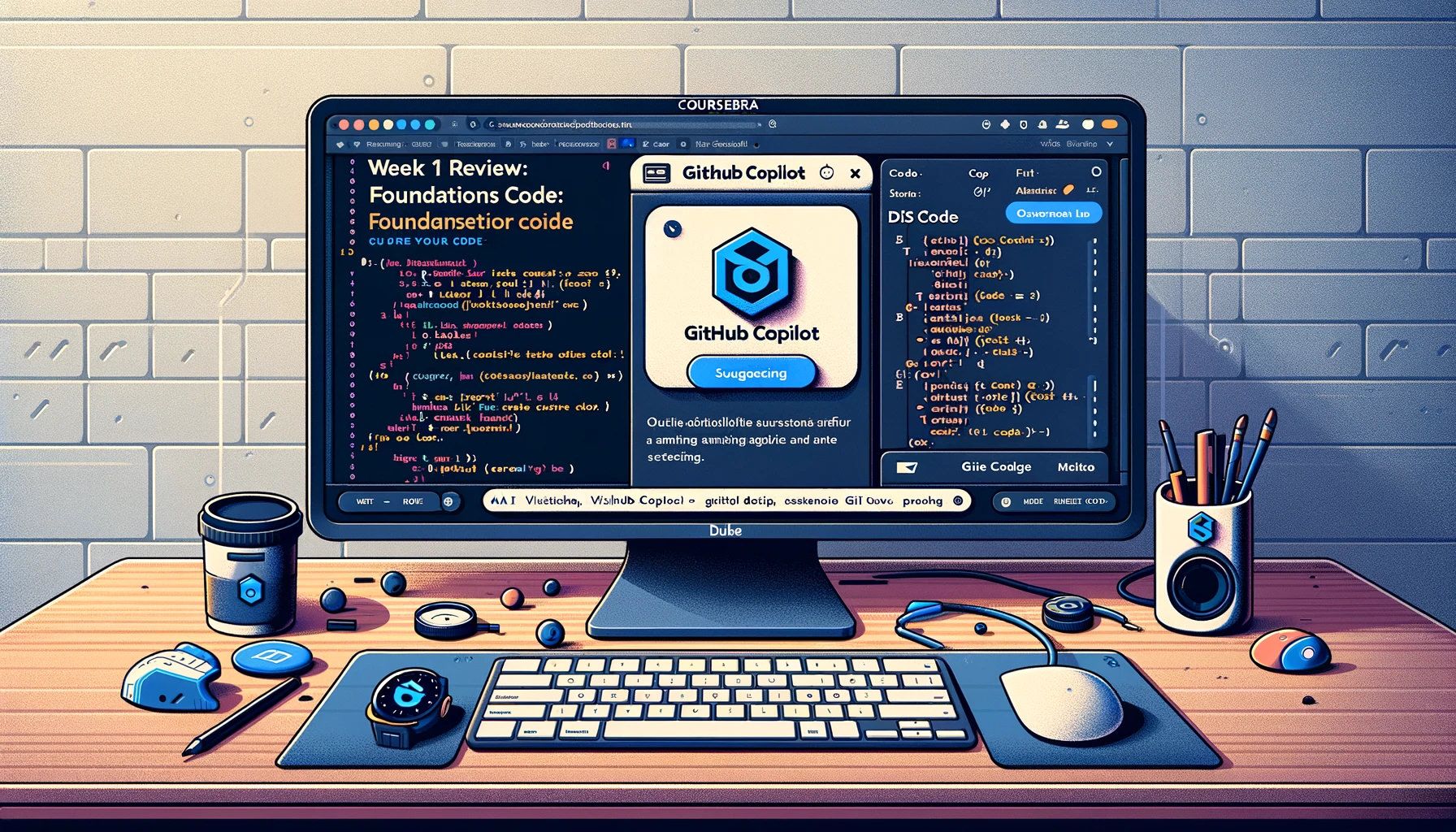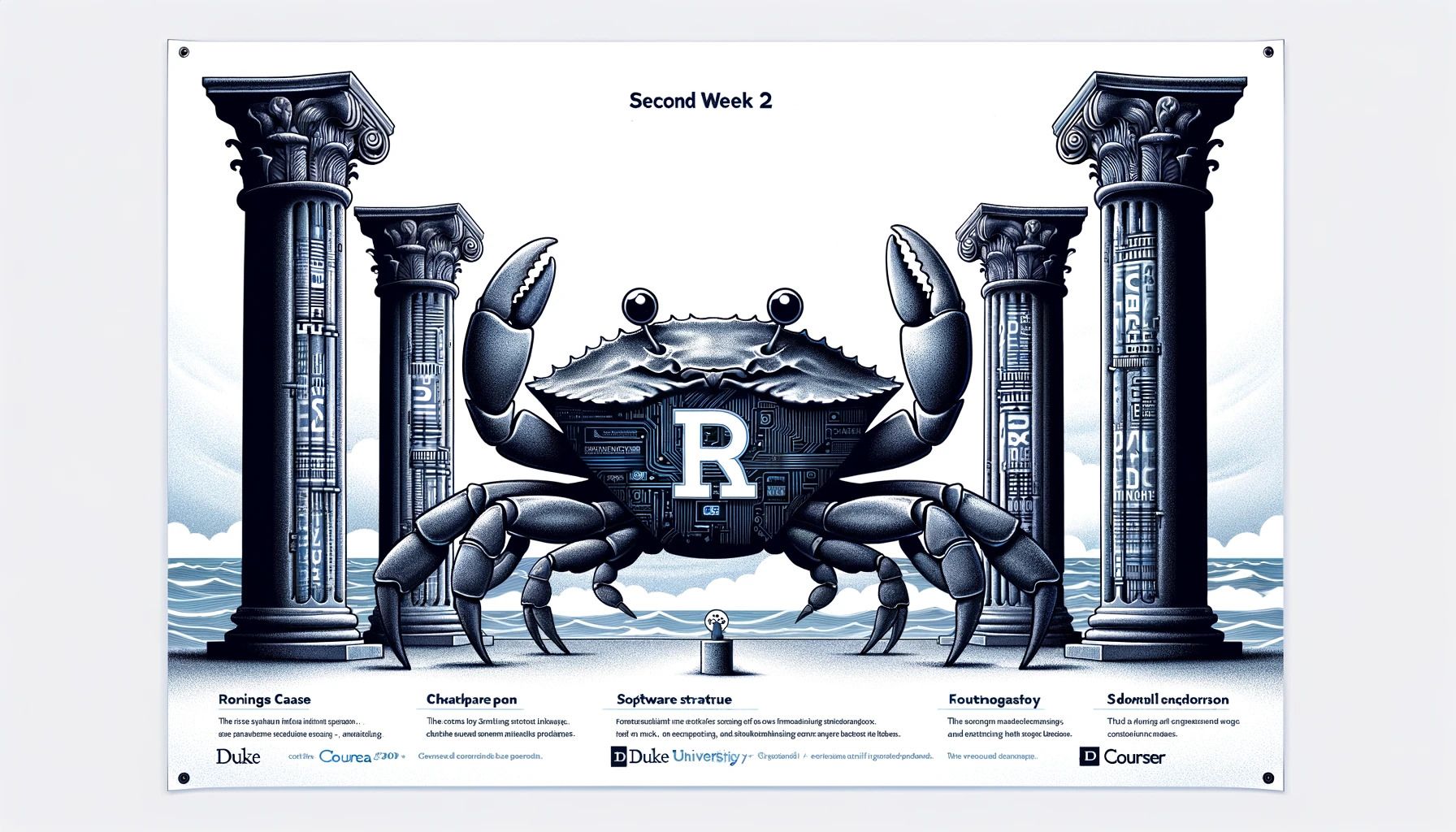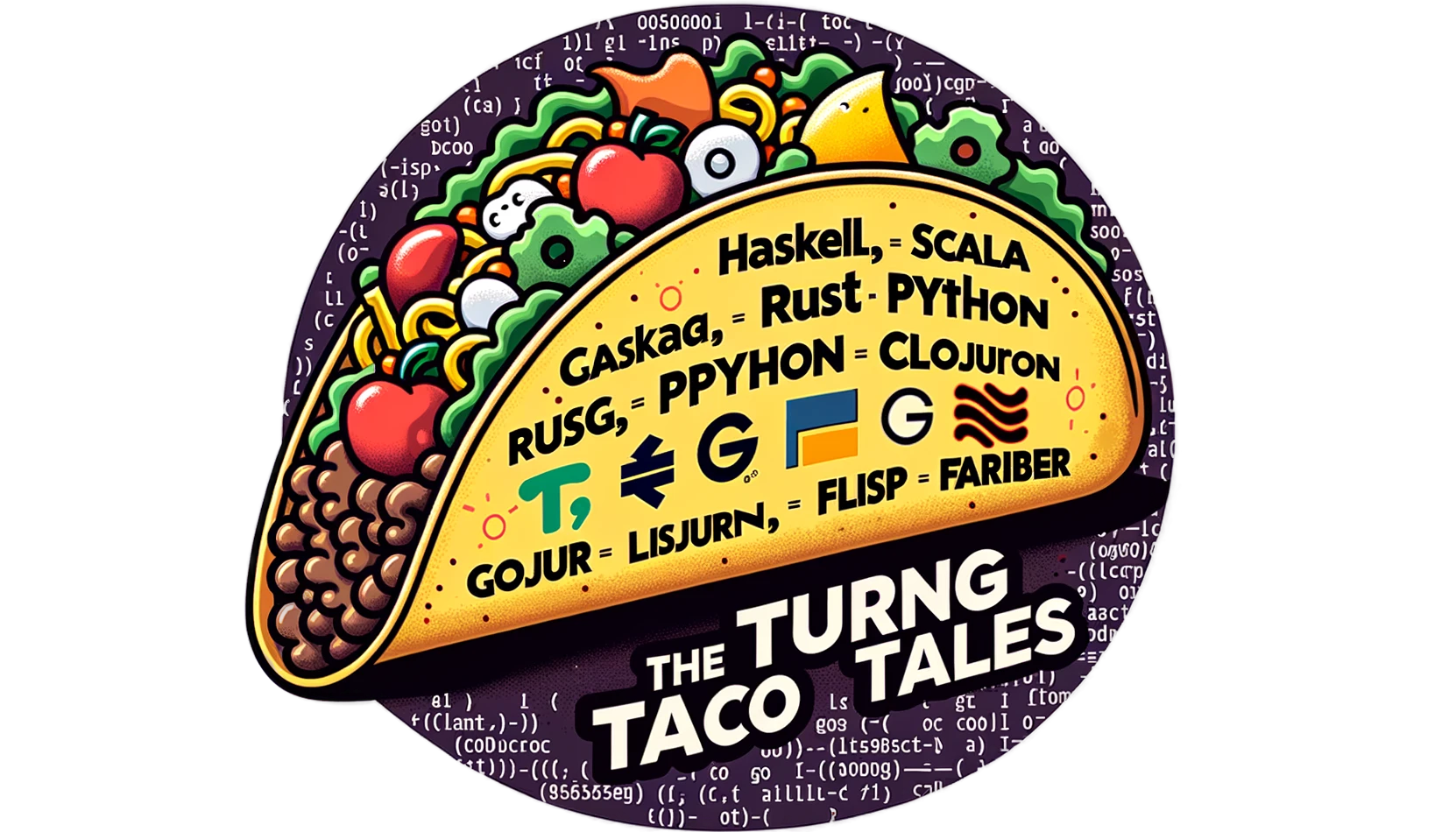The First Two Weeks of Coursera’s Rust Fundamentals Course
Explore the "Rust Fundamentals" course on Coursera with "The Turing Taco Tales." From basics to advanced features, join our comprehensive review journey. Your feedback matters—voice your interest in a deep dive into the labs and beyond. Subscribe and comment now!

Overview
The "Rust Fundamentals" course on Coursera, brought forth by Duke University, presents a valuable learning opportunity for aspiring and seasoned developers. It embodies the educational revolution sparked by MOOCs, with origins traced back to Stanford's pioneering online courses. This evolution has seen platforms like Coursera grow from a promise of free education for all to a substantial industry that has redefined lifelong learning.
Rust, the subject of this course, is more than a programming language; it's a paradigm shift in systems programming. Its genesis was a moment of frustration faced by Graydon Hoare, which gave rise to a language that marries speed with memory safety, addressing a perennial problem in software development. The adoption of Rust by tech titans such as Microsoft and Amazon is a testament to its growing importance. It is recognized for its potential to drive software reliability and performance, which is why it is being integrated into critical infrastructure projects and has consistently been voted the most “loved” programming language in developer surveys.
With its robust type system and ownership model, Rust offers a unique approach to concurrency and memory safety challenges, positioning it as a cornerstone language for the next two decades. It is poised to shape the future of software, from operating systems and file storage solutions to network servers and beyond. As we witness this ascent, the "Rust Fundamentals" course is a gateway for learners to equip themselves with the skills needed to be at the forefront of this technological evolution.
This review aims to explore the initial offering of the "Rust Fundamentals" course, evaluating its capacity to introduce and immerse learners in the Rust language. We will consider whether the course's structure and content align with the needs of its audience, ranging from those making their first foray into programming to developers seeking to deepen their expertise in a language rapidly becoming indispensable in the industry.
Week 1 Review: Foundations Before Code
The first week of Coursera's "Rust Fundamentals" takes an unconventional route, focusing more on environment setup than Rust coding itself.
While essential for newcomers, this foundational week might add little value for those with a background in software development, where configuring a coding environment is often second nature. While a forward-looking tool, the course's emphasis on GitHub Copilot might only seem relevant after a while.
However, given that Copilot is freely available to verified students, its inclusion could spark interest for those looking to leverage this AI-powered coding assistant in their learning journey.

The week might feel underutilized for anyone with more than cursory programming exposure as we are made to wait to engage with Rust's syntax and features.
Yet, for those new to programming, the week's slow pace could serve as a helpful orientation to the broader landscape of software development tools.
We finish the week's materials, hoping the course will soon shift toward the language's core concepts.
Week 2: Rust's Foundational Pillars

In the second week of "Rust Fundamentals," the course delves into the foundational elements that form the bedrock of Rust programming. We start by navigating the basics: importing libraries, understanding the main function, and declaring variables. The concept of shadowing, which allows for variable names to be reused for new values while retaining their immutability, is an early indicator of Rust's nuanced approach to state management.
The journey continues with loops and flow control, highlighting Rust's powerful yet straightforward tools for managing program execution. Here, Rust's pattern matching exemplifies the language's emphasis on safety and expressiveness, mainly through the match expression, which elegantly handles multiple patterns with grace and precision.
This week also introduces the basics of functions and touches upon the early stages of error handling. The course starts with the panic! Macro, teaching students how to handle unrecoverable errors that should stop the program immediately, and ties in how we can use pattern matching to handle expected errors.
We are also treated to an elementary explanation of borrowing, which in Rust, is a pivotal concept that governs how references to data are handled to ensure memory safety. Although a deep dive into ownership has yet to be on the agenda, the course provides a glimpse into this cornerstone feature that sets Rust apart from other languages.
The instructional videos continue to be clear and engaging, ensuring that these fundamental topics are presented and contextualized within Rust's broader design philosophy. However, the absence of lab sessions for free-tier students leaves a gap in the practical application of these concepts. These interactive exercises reinforce the week's lessons and build the hands-on experience necessary to gain proficiency in Rust.
Conclusion
The course, particularly in its second week, lays a solid foundation in the Rust programming language, carefully threading through its basics with precision and clarity.
The engaging video lectures are not just educational but also enjoyable, setting us up for success in the Rust ecosystem.
The second week is commendable for how it introduces the core constructs of Rust—a language that champions performance, safety, and concurrency. With its clear exposition of Rust's flow control, pattern matching, and error handling, the course sets the stage for deeper exploration into the language's more intricate features.
However, the true depth of learning in "Rust Fundamentals" lies ahead, in the hands-on application of its labs. Here at The Turing Taco Tales, we are considering to take the plunge into the full course experience, but we seek to gauge the interest of you, our readers.
Would you like to see a comprehensive review of the complete course and labs, providing you with insights and practical knowledge from "Rust Fundamentals"?
While a contribution in the form of a paid subscription to support our endeavor would be highly appreciated, it is your voice that we value most.
A free subscription is all it takes to express your opinion. Every comment and show of support empowers "The Turing Taco Tales" to bring you the thorough, hands-on course reviews you look forward to.
Addendum: A Special Note for Our Readers
I decided to delay the introduction of subscriptions. You can read the full story here.
If you find our content helpful, there are several ways you can support us:
- The easiest way is to share our articles and links page on social media; it is free and helps us greatly.
- If you want a great experience during the Chinese New Year, I am renting my timeshare in Phuket. A five-night stay in this resort in Phuket costs 11,582 € on Expedia. I am offering it in USD at an over 40% discount compared to that price. I received the Year of the Snake in style.

ReedWeek Timeshare Rental
- If your finances permit it, we are happy over any received donation. It helps us offset the site's running costs and an unexpected tax bill. Any amount is greatly appreciated:
- Finally, some articles have links to relevant goods and services; buying through them will not cost you more. And if you like programming swag, please visit the TuringTacoTales Store on Redbubble. Take a look. Maybe you can find something you like:






